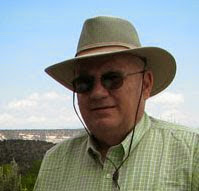
Americus and Emporia have interesting intertwining stories, from the early days:
"Prior to the legal organization of the county, the territorial government had laid out the counties, and several attempts had been made to locate a county seat. Americus, because of a larger settlement in and about the town, had succeeded in securing the county seat. Laura FRENCH, in the "History of Lyon County", gives the date as "the autumn of 1858, probably in September". From 1860 to about 1862, the settlers in the vicinity of Emporia tried all manner of strategy to take the county seat away from Americus and bring it to Emporia, which was by this time was growing faster than any of the other towns in the county. Act of the Legislature changed the boundary lines of the county twice in order to gain more votes for the south end of the county. It was finally accomplished when C. V. ESKRIDGE, a resident of Emporia, then in the Legislature, had a resolution passed declaring that all of the votes cast by the settlers in the Indian land, were illegal. This act gave Emporia the county seat, but Americus had the records and refused to give them up.
"George SIMONS told the story of "County Seat Was Moved", in the Topeka Capital, under the date of June 11. 1938. Mr. SIMONS was the printer for C. V. ESKRIDGE, when he as was editor and publisher of the Emporia Republican, and had heard the story of the move, or "steal", many times from the lips of Mr. ESKRIDGE. The story ends in a most amusing episode of how a band of Emporia men "one dark night set out from Emporia on horseback to batter in the doors of the old log courthouse, and steal the records." A tree had fallen across the Neosho River, and in the attempt to cross on the tree, one man fell in, another jumped in after him. He called to the third man "Help me save SODEN", but the third man replied, "SODEN can take care of himself, I'm saving the records." It is said the records still show the water stains. The story, as related by Mr. SIMONS, was verified by many of the old timers in Americus, and is found be a clear picture of the stalwart men and women who made the county a strong unit of Kansas State History. Many of those early settlers are buried in the Americus Cemetery, as well as in the Frost and Fruitland Cemeteries, not far from Americus."
Source: http://www.rootsweb.com/~ksfhgslc/americuscem.html (extracted 10 Jan 08)
See you in the Kansas Flint Hills! ;-)

No comments:
Post a Comment